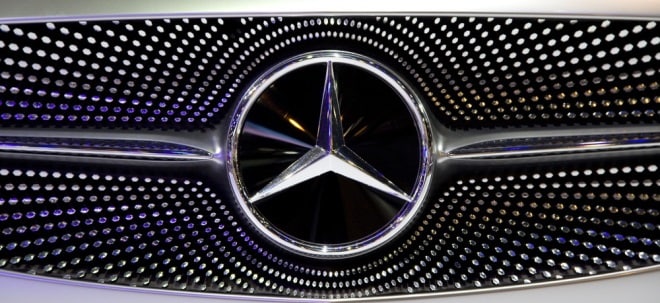Auch wenn das so wäre wie du gerade geschrieben hast, eine KE kommt bei den Investoren nicht gut an, in den meisten Fällen wird dann schnell verkauft, in der Hoffnung dass man danach noch mal bei einem viel tieferem Kurs einsteigen könnte.
Ich wünschte, dass der Epi-Vorstand eine KE erst dann macht, wenn sie wirklich keine anderen Lösungen fürs Geldreinbringen finden. Was ist denn, wenn eine KE durchgeführt wird, das Geld ausgegeben, aber das Ergebnis immer noch nicht gut, genug überzeugend für die U.S. Food and Drug Administration?
Dann hat man die Aktie verwässert, und die erholt sich danach auch nicht mehr wie erwartet.
Siehe unten die noch nicht geklärten Fragen v. Ende März, FDA. (Falls jemand die noch lesen möchte):
Question 1
In the pivotal trial, Epi proColon has a sensitivity of 68% (95% CI: 53%, 80%) and a specificity of 79% (95% CI: 77%, 81%). In the FIT comparison study to assess non-inferiority of Epi proColon, the goal for sensitivity was met, but the goal for specificity was not achieved. The decreased specificity of Epi proColon was not associated with a clear benefit in sensitivity when compared to a commercially available FIT test. The lower specificity could lead to an increase in the number of avoidable colonoscopies. While colonoscopies are considered the standard of care and recommended in CRC screening guidelines, there are adverse events associated with such invasive procedures. In the non-clinical studies, non-CRC specimens are not consistently detected by Epi proColon. In addition, there are some other cancer types for which methylated Septin9 is detected by Epi proColon.
a. Do these outcomes adequately demonstrate effectiveness of Epi proColon within the context of the proposed intended use and current recommendations for colorectal cancer screening?
b. If yes, do the data support screening with Epi proColon as (i) a second-line option only in patients declining FIT, (ii) an alternative for FIT, (iii) other option?
c. Based on the results of the pivotal and supplemental clinical studies, do the data allow for adequate assessment of the benefits versus risks of Epi proColon?
Question 2
In the pivotal study, Epi proColon results in non-CRC subjects were affected by demographic factors, such as age and ethnicity. In addition to the proposed age limitation (i.e., CRC screening guideline recommendations vary for persons over the age of 75. The decision to screen persons over the age of 75 should be made on an individualized basis in consultation with a healthcare provider), does the current data warrant one of the following with respect to certain patient subgroups:
a. Additional labeling considerations (e.g., warning, limitation) for patients who are above 75 years of age and/or African Americans?
b. Precaution about potential for increased false positive rate in patients who are above 75 years of age and/or African Americans?
Question 3
The proposed claims do not rule out repeat testing as part of the CRC screening program with Epi proColon. Cross-sectional performance at one time point was established in the pivotal and supplemental clinical studies. Follow-up longitudinal performance data on patients that tested negative with Epi proColon were not provided. The Sponsor has suggested a limitation (i.e., There is insufficient evidence to report programmatic sensitivity of Epi proColon test over an established period of time.).
a. Based on the available data, should the Epi proColon assay claims be limited to one-time screening?
i. If no, please discuss whether a longitudinal study should be required to address long-term safety and effectiveness.
ii. If yes, please advise if a longitudinal study should be optional.
b. The Sponsor has proposed a warning (i.e., A negative Epi proColon test result does not guarantee absence of cancer. Patients with a negative Epi proColon test result should be advised to continue participating in a colorectal cancer screening program that also includes colonoscopy, fecal tests and/or other recommended screening methods.). Does this adequately address considerations (e.g., time interval and testing method) in product labeling to assure safety and effectiveness for follow-up evaluation of patients testing negative with Epi proColon?
Question 4
Please note that the inclusion of questions related to a post-approval study should not be interpreted to mean that FDA has made a decision or is making a recommendation on the approvability of this PMA. The presence of a post-approval study plan or commitment does not in any way alter the requirements for pre-market approval and a recommendation from the Panel. The premarket data must reach the threshold for providing reasonable assurance of safety and effectiveness before the device can be found approvable and any post-approval study could be considered. Assuming that a longitudinal study is needed to evaluate performance with Epi proColon, please comment on the following:
a. Is comparison to a recommended CRC screening option (e.g., annual FIT) needed to evaluate study results and to mitigate study limitations as currently proposed by the sponsor (such as controlling for incident CRC cases, lack of objective criteria for evaluating study results)?
b. Is the proposed post-approval study adequate to address the following issues?
i. Performance (e.g., number of test negative to positive conversions, diagnostic yield of significant findings, predictive values, adherence to screening and diagnostic follow-up);
ii. Performance across different clinicopathologic characteristics;
iii. Safety concerns (e.g., in the sponsor’s proposal, subjects would forgo annual FIT screening during the study duration and repeat Epi proColon testing will occur annually);
iv. Appropriate study population (e.g., general average risk population vs. average risk population who are unwilling, unable or do not undergo screening by other recommended screening methods).
c. Are there any additional considerations that should be taken into account for the post-approval study?
|


 Thread abonnieren
Thread abonnieren

